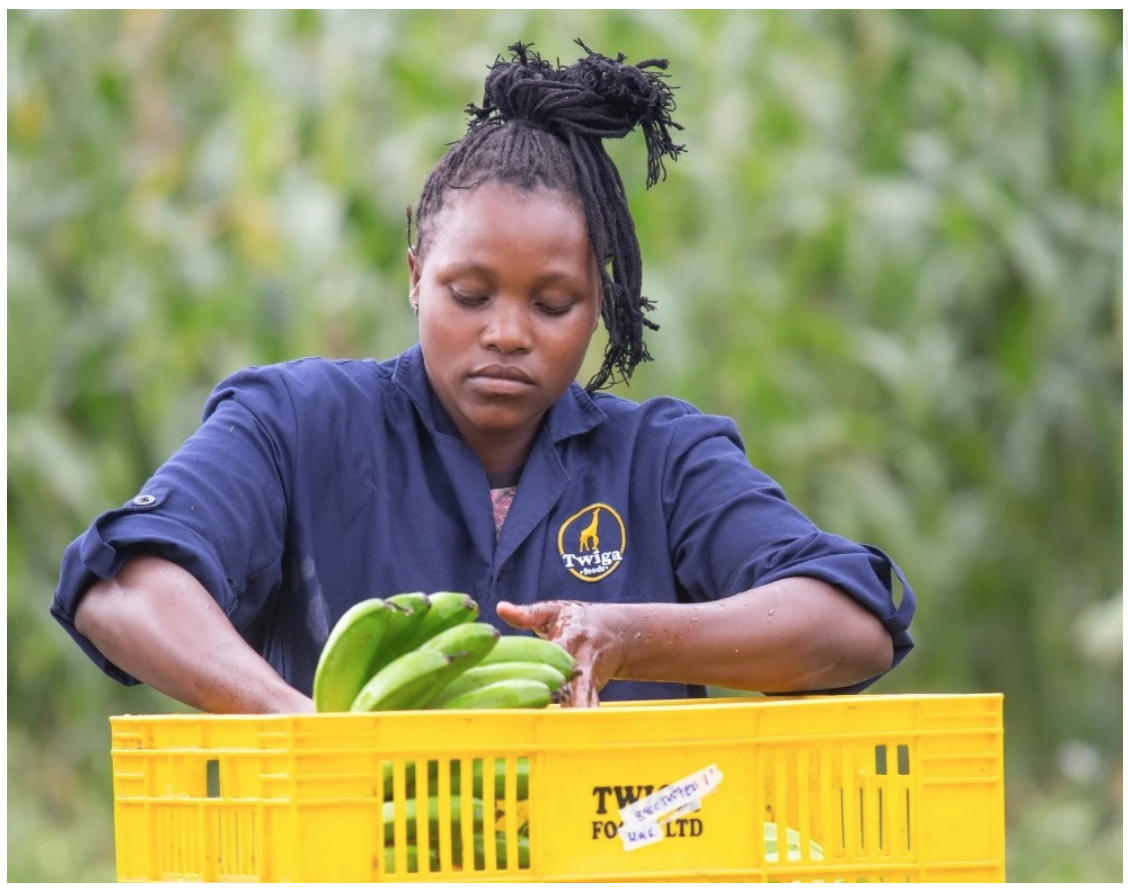Image credit: Twiga Foods
By Lynda Kiernan-Stone, Global AgInvesting Media
Twiga is a Kenyan agtech startup that uses mobile technology to align supply and demand in Africa’s large but fragmented fruit and vegetable markets. In 2019, the company had its eye toward a pan African expansion by Q3 2020, however, like in so many cases, COVID-19 had other plans.
Although stalled, Twiga was far from idle. The company expanded to 1,000 employees, quadrupled its revenues between April 2020 and August 2021, and is expanding to other East African markets, including Uganda and Tanzania, before the end of this year.
But Twiga’s horizons are even broader. And in support of its strategic growth, the company announced it has closed on a $50 million Series C led by Creadev, a Paris and Nairobi-based family office and private equity investor, bringing total funding to-date to $110 million.
Creadev was joined by return Africa-focused investors TLcom, IFC Ventures, DOB Equity, and Goldman Sachs spinoff Juven, and first-time investors OP Finnfund Global and Endeavor Catalyst Fund.
Co-founded in Nairobi in 2014 by current CEO Peter Njonjo and former CEO Grant Brooke – who ventured to Kenya in 2008 to conduct graduate work for his master’s degree – Twiga Foods was born from Brooke recognizing that the disorganized nature of the agriculture and food value chain was benefiting the brokers and not the farmers, and was blocking any attempts at solving issues in the market.
For the bulk of its existence, Twiga connected farmers and their produce with vendors and outlets through an app. But in 2019 the company saw a way to increase revenue, so it expanded its scope and began to connect FMCGs and manufacturers with retailers across Kenya, becoming a competitor with regional players such as Sokowatch and MarketForce.
“We see ourselves as building a one-stop-shop for the informal retailer and all their needs. So that’s what we’re evolving into as a business,” Peter Njonjo, CEO, Twiga, told TechCrunch.
Twiga’s technology gives it the ability to effectively track food and produce from processing to distribution, with the B2B e-commerce platform claiming that more than 100,000 Kenyan customers use its services, delivering more than 600 metric tons of product to 10,000+ retailers every day.
At the core of its operations are smallholder farmers, however, this aspect of the business has not been without its challenges, especially in regard to the traceability of certain produce, like tomatoes. On the production end of the spectrum, there is the potential for activity happening without Twiga’s awareness – like farmers applying too many pesticides to crops causing food safety issues.
To avoid these complications, Twiga said it plans to personally oversee the entire value chain of some produce where traceability can be difficult.
“For us, it’s choosing value chains where you can manage the traceability issue while there are some value chains that will be harder to manage,” said Njonjo. “The key thing is that we now have a more blended approach. It’s not just about working with small farmers; we still work with them but on some value chains. But we’re looking at having large commercial farms integrated into our supply chain.”
A Unicorn in the Clearing
Consumers in the U.S. spend only about 6 percent of their disposable income on food, thanks to decades of investment in retail infrastructure that have worked to keep food prices low. This is still not the case across Africa, where a ton of tomatoes can cost $400, compared to $100 in the U.S., due to intermediaries and the continent’s inefficient systems.
Twiga stated that it’s currently developing a proof-of-concept aimed at reducing consumer prices for popular domestic plant-based food products by more than 30 percent to be funded by a portion of the capital from this round. Once established, Twiga stated that it may spin off the business in order to maintain an asset-light approach to expansion.
The funding will not only be used to test this concept, but also will be allocated to roll out the production of low cost food and non-food products using “precision agriculture and satellite imagery” under its own brand by the end of this year, which it intends to begin selling across East Africa by February 2022.
“We are deeply convinced in Twiga’s potential to revolutionize informal retail across sub-Saharan Africa,” said Pierre Fauvet, Africa director, Creadev. “Tapping into a $77 billion urban market on the continent, Twiga has gained significant traction since inception, leveraging on technology to optimize the food supply chain in African cities and constantly innovating to better tackle logistics, commercial, social, and environmental challenges.”
Achieving these strategic goals would make Twiga well placed to secure an even larger capital round next year, according to Njonjo, who despite not revealing the company’s current valuation, expressed to Bloomberg his goal of achieving unicorn valuation of $1 billion within five years.
“We’ve been fairly successful in Kenya,” commented Njonjo, “So, we want to consolidate our dominant position, clear out our proof of concept, and expand to neighbouring countries.”
– Lynda Kiernan-Stone is editor with GAI Media, and is managing editor and daily contributor for Global AgInvesting’s AgInvesting Weekly News and Agtech Intel News, as well as HighQuest Group’s Oilseed & Grain News. She can be reached at lkiernan-stone@

